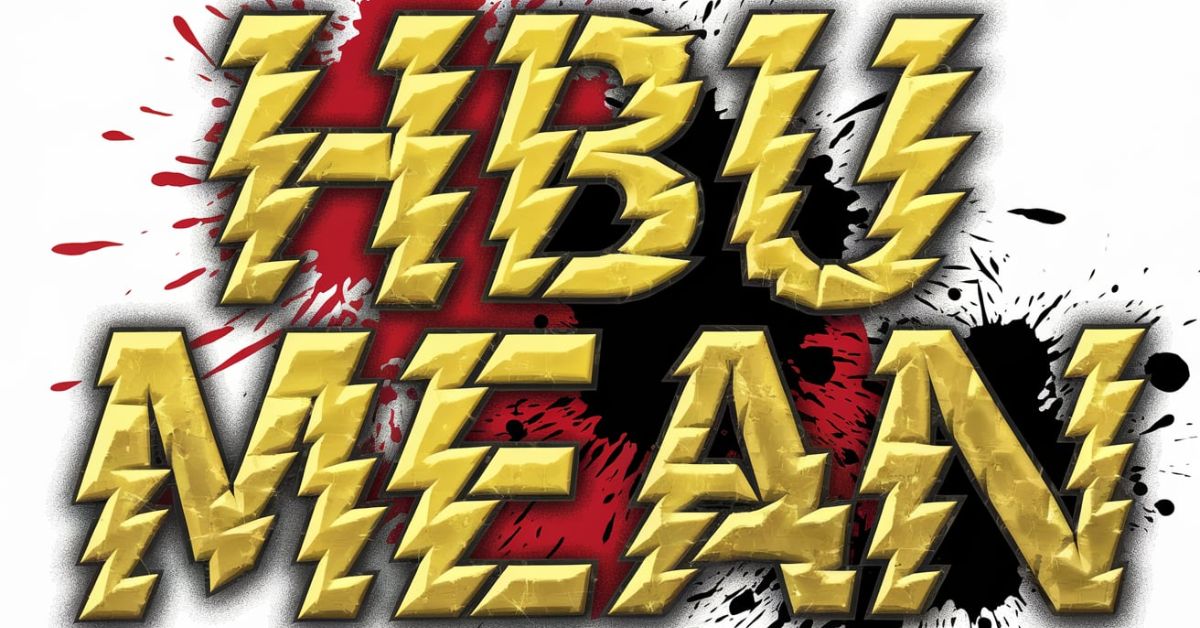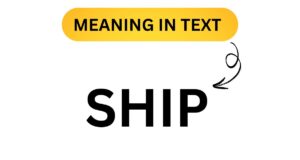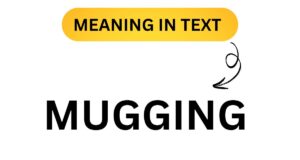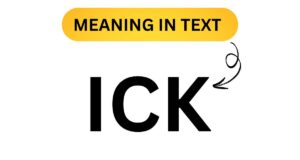HBU mean – if you’ve come across this acronym in texts or social media, you might be wondering what it stands for and why everyone’s using it. Don’t worry, you’re not alone! Whether you’re chatting with friends or scrolling through your feed, understanding this trendy term can help you stay in the loop.
In this article, we’ll break down what HBU means, where it comes from, and how to use it in your own conversations. So, let’s dive in and make sure you’re up to speed with this popular phrase that’s taking over the digital world!
When Did HBU Come into Play?
The history of acronyms on the internet is as long as a college thesis, but HBU is a relatively new player in the game. It’s one of those phrases that has gained popularity alongside texting and social media platforms like Twitter, Instagram, and Snapchat. After all, characters are precious when you’re tweeting, and you don’t want to waste any of them when you can just squeeze in a few letters instead!
It’s not just a millennial thing, either. People of all ages have jumped on the HBU train, and it’s found its place in group chats, Facebook posts, and even email chains (though, let’s be real, it’s still a bit more “chill” than your standard professional email lingo).
Examples of How to Use HBU in Real Life
Still scratching your head about how to use HBU? Let’s look at some fun, relatable examples where this little acronym can come in handy.
- Casual Texting with Friends: You’re texting your friend about your weekend plans, and the convo goes something like this:
- You: “Going to a concert tomorrow, should be fun!”
- Them: “Sounds awesome! HBU?”
- You: “Same! I’m actually thinking about grabbing dinner first too. You?”
- Social Media Posts: Picture yourself posting a cute pic on Instagram, and someone comments asking about your day:
- Commenter: “What’s up?”
- You: “Just relaxing! HBU?”
- Group Chats: In a group chat with a few friends, someone might ask how everyone’s doing. You could reply with:
- “Had a super busy week. HBU?”
- “Not much, just chilling. You?”
What Makes HBU So Popular?
You’re probably wondering: what’s so special about HBU? Well, the answer lies in its simplicity. The internet loves efficiency. Whether you’re sending a text, a tweet, or even a Facebook message, HBU packs a lot of punch into just a few letters. Plus, it’s playful and easygoing, which makes it perfect for casual conversations. It’s like the online equivalent of a relaxed wave or a friendly nod.
In addition to being simple, HBU is versatile. It’s not tied to any specific age group or situation, making it the perfect go-to phrase for both young people and those who just like to keep things light and fun. Whether you’re catching up with friends, family, or colleagues (though maybe not your boss—unless they’re a cool boss), HBU can work.
Is There Any Special Context to HBU?
Good question! You might be wondering if there are any special contexts where HBU fits better than others. While it’s generally used in informal, laid-back situations, there are a few things to keep in mind:
- Don’t Overdo It: HBU is perfect for texting or quick chats, but it’s not something you’d want to drop into a serious conversation. If someone just shared bad news, you might want to skip the “HBU” and show some empathy instead.
- Consider the Relationship: It’s a term that works best between people who are comfortable with each other. So, if you’re texting someone you don’t know very well, it could come off as a bit too casual. But among friends or close family, it’s a goldmine for keeping things light.
- Mind Your Tone: Like all internet lingo, tone can be hard to interpret in text. Some people might take “HBU?” as too informal or abrupt. A little smiley face or friendly emoji can go a long way in making sure the vibe stays positive.
Common Misconceptions About HBU
Let’s clear up a few things that people often get wrong about HBU:
- HBU is Not a One-Size-Fits-All: While it’s easy to assume HBU works in every situation, it doesn’t. It’s great for friendly, informal chats but probably isn’t appropriate for formal emails or interviews. Using it in the wrong context could make you sound unprofessional.
- It’s Not Just for Teens: While HBU has a reputation for being popular among younger people, it’s definitely not exclusive to them. Older generations are catching on too! You might be surprised to find your parents or coworkers using it.
- HBU Doesn’t Always Need a Reply: One common misconception is that HBU always requires a detailed response. It doesn’t. Sometimes, the “HBU?” is just a way of keeping the conversation light and open-ended. No need to overthink it!
What Can You Take Away From All This?
Alright, you now know the meaning behind the phrase “HBU” and how to use it like a pro. But beyond just learning an acronym, you’ve also unlocked a little piece of internet culture that can spice up your text conversations and social media exchanges.
Next time you’re chatting with a friend or updating your status, throw in a casual “HBU” and see how it feels. You might even notice the conversations flow a little more naturally. Who knows? You might even get a few “HBU?” replies of your own!
So, What Do You Think?
Have you been using HBU all along, or are you just now getting the hang of it? Is there another trendy acronym you can’t quite figure out? Drop your thoughts in the comments below, and let’s keep the conversation going. And hey, HBU?
Conclusion
So, now you’re officially in the know about what HBU means and how to use it in your everyday chats. Whether you’re texting friends, posting on social media, or keeping things light in a group conversation, HBU is the perfect shorthand to keep things breezy and fun. It’s one of those little internet quirks that adds a bit of personality to your messages while helping you save time because let’s face it, who doesn’t love a good shortcut?
Now that you’re equipped with this cool phrase, go ahead and throw it into your next chat. Who knows, you might just start a whole new trend! So, HBU? Let me know how you feel about this acronym in the comments always curious to hear from you!









